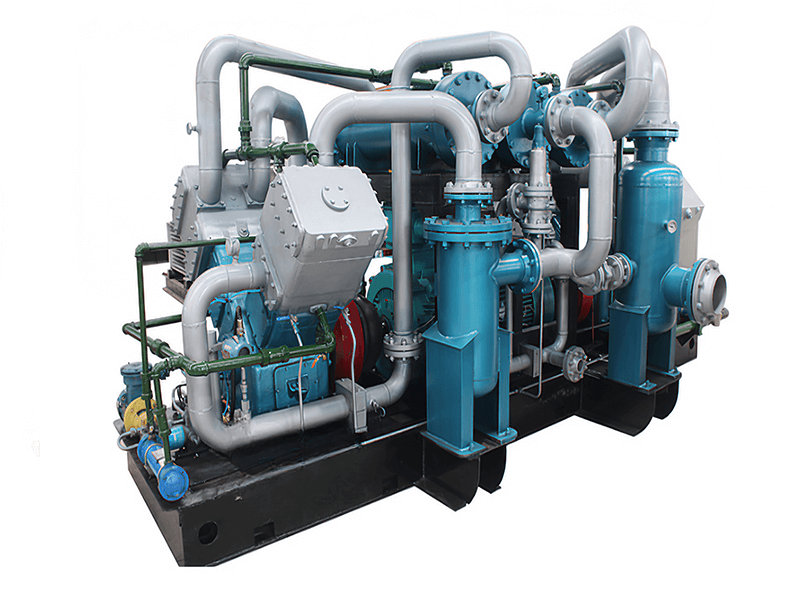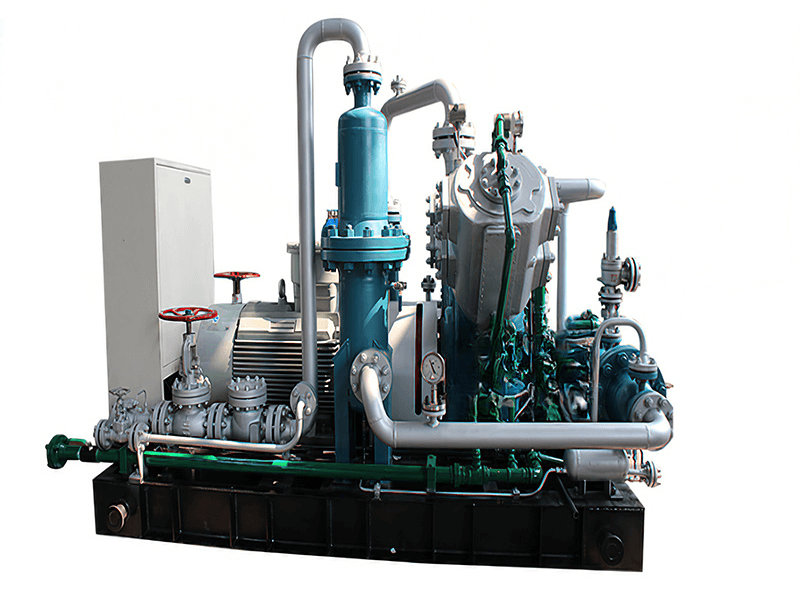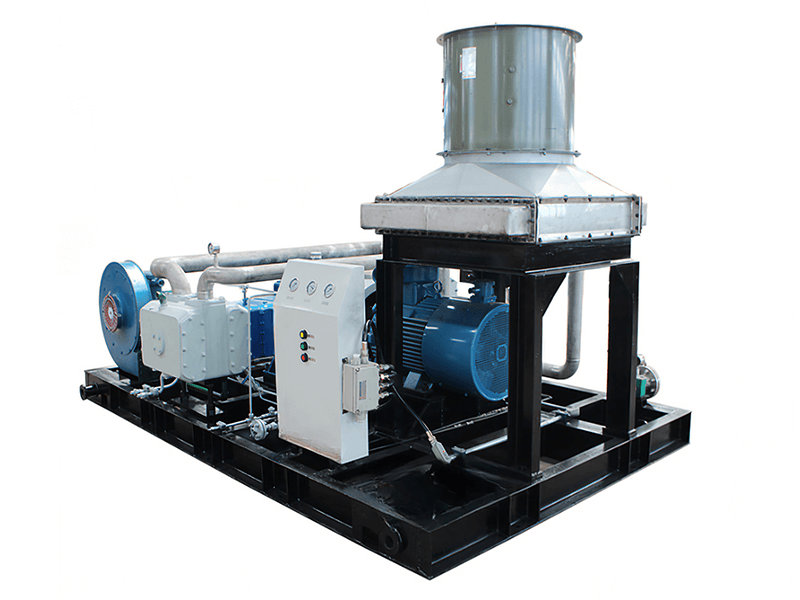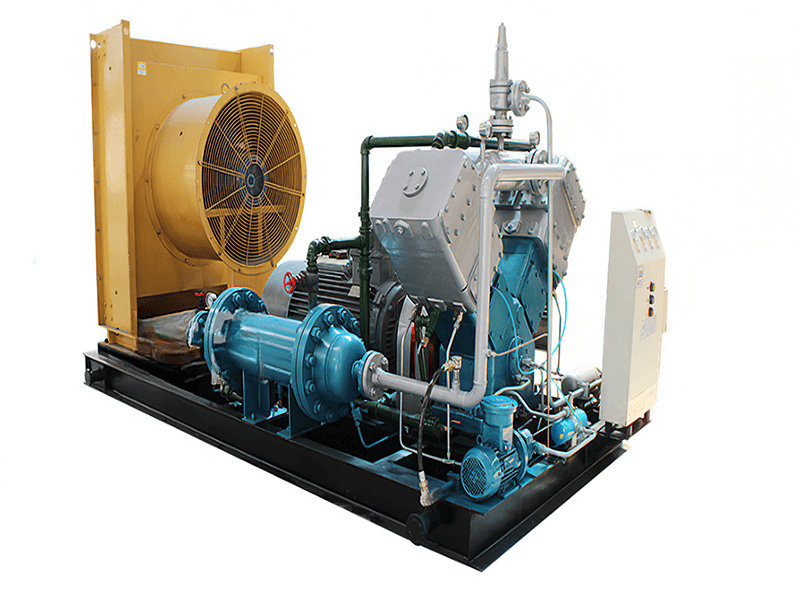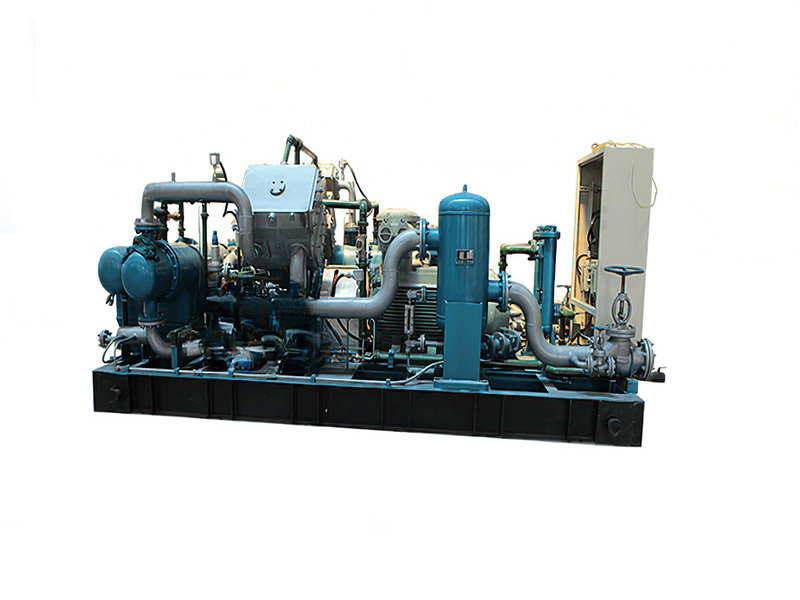Different types of natural gas compressors offer various advantages and disadvantages based on factors such as efficiency, capacity, maintenance requirements, and cost. Here are some common types of natural gas compressors along with their advantages and disadvantages:
1. Reciprocating Compressors:
Advantages:
- High efficiency and reliability.
- Suitable for a wide range of flow rates and pressures.
- Can handle varying gas compositions.
- Well-established technology with a long history of use.
Disadvantages:
- Higher initial capital cost compared to other compressor types.
- Requires regular maintenance and inspections.
- Generates more noise and vibrations.
- Limited turndown ratio (the range between maximum and minimum flow rates).
2. Rotary Screw Compressors:
Advantages:
- Compact design with a smaller footprint.
- Lower noise and vibrations compared to reciprocating compressors.
- Can handle continuous duty cycles.
- Requires less maintenance compared to reciprocating compressors.
Disadvantages:
- Lower efficiency compared to reciprocating compressors.
- Limited pressure capabilities.
- May have limitations in handling variable flow rates.
- Sensitive to gas impurities and contaminants.

3. Centrifugal Compressors:
Advantages:
- High flow rates and large capacity.
- Can handle high-pressure applications.
- Generally more efficient than reciprocating and screw compressors.
- Lower maintenance requirements compared to reciprocating compressors.
Disadvantages:
- Higher initial capital cost.
- Limited turndown ratio.
- Sensitive to changes in gas composition.
- Requires skilled operators for proper operation and maintenance.
4. Axial Compressors:
Advantages:
- High flow rates and large capacity.
- Suitable for high-pressure applications.
- Can achieve high compression ratios.
- Efficient for continuous operation.
Disadvantages:
- Limited turndown ratio.
- Complex design and requires precise engineering.
- Higher capital cost compared to other compressor types.
- Requires skilled operators for proper operation and maintenance.
It's important to note that the advantages and disadvantages listed above are general in nature and may vary depending on the specific design, configuration, and application of the compressor. Factors such as gas composition, operating conditions, and maintenance practices can also influence the performance and suitability of a particular compressor type for a given application. When selecting a natural gas compressor, it's essential to consider the specific requirements of the project and consult with experts or manufacturers to determine the most suitable option.
Different types of natural gas compressors are used in various industries based on their specific capabilities and requirements.
Here are some industries and applications where different types of natural gas compressors are commonly employed:
1. Reciprocating Compressors:
- Natural Gas Transmission and Distribution: Reciprocating compressors are widely used in pipelines for boosting gas pressure and maintaining flow rates during transmission and distribution.
- Gas Gathering and Processing: They are utilized in gas gathering systems to compress raw natural gas from wellheads and in gas processing plants for various separation and treatment processes.
- Petrochemical Industry: Reciprocating compressors are employed in the petrochemical industry for gas compression and processing in applications such as ethylene production and refinery processes.
2. Rotary Screw Compressors:
- Natural Gas Fueling Stations: Rotary screw compressors are commonly used in natural gas fueling stations to compress natural gas for refueling vehicles, including compressed natural gas (CNG) and liquefied natural gas (LNG) applications.
- Industrial Applications: They are utilized in various industrial processes requiring compressed air or gas, such as manufacturing, construction, and food processing.
3. Centrifugal Compressors:
- Natural Gas Processing Plants: Centrifugal compressors are commonly used in natural gas processing plants for high-capacity gas compression, including gas compression during the extraction, separation, and purification processes.
- Refineries: They are employed in refineries for applications such as hydrocracking, fluid catalytic cracking, and gas compression in various refining processes.
- LNG (Liquefied Natural Gas) Facilities: Centrifugal compressors are utilized in LNG facilities for gas compression during liquefaction, storage, and regasification processes.
4. Axial Compressors:
- Gas Turbines: Axial compressors are a key component of gas turbine engines used in power generation and aircraft propulsion. They compress air for combustion and subsequent power generation.
- Oil and Gas Exploration: They are employed in upstream oil and gas operations for gas compression during exploration and production processes, such as well testing and enhanced oil recovery.
It's important to note that these are general examples, and the specific applications and industries can vary based on factors such as compression requirements, capacity, and operating conditions. The selection of the appropriate compressor type for a specific industry or application should be based on a thorough assessment of the requirements and consultation with experts in the field.














